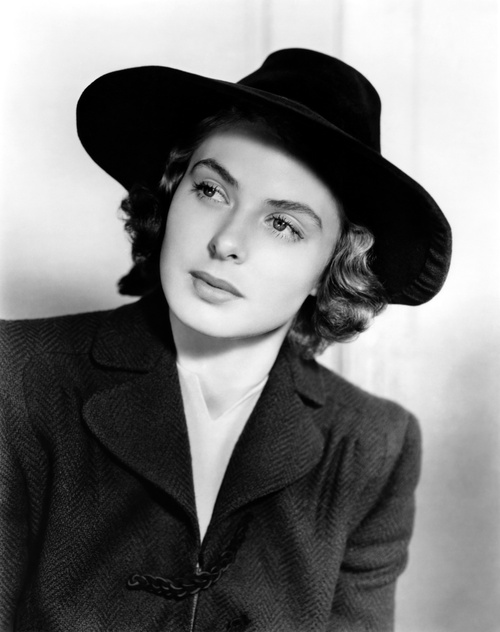Информация об исполнителе
Ingrid Bergman (August 29, 1915 - August 29, 1982) was a Swedish actress noted for her starring roles in American films. She won three Academy Awards, two Emmy Awards, and the Tony Award for Best Actress. She is ranked as the fourth greatest female star of American cinema of all time by the American Film Institute. She is best remembered for her role as Ilsa Lund in Casablanca (1942), a World War II drama co-starring Humphrey Bogart.
Before becoming a star in American films, she had already been a leading actress in Swedish, French, German, Italian, and British films. Her first introduction to American audiences came with her starring role in the English remake of Intermezzo in 1939. In America, she brought to the screen a "Nordic freshness and vitality," along with extreme beauty and intelligence, and according to the St. James Encyclopedia of Popular Culture, she quickly became "the ideal of American womanhood" and one of Hollywood's greatest leading actresses.
Her producer David O. Selznick, who called her "the most completely conscientious actress" he had ever worked with, gave her a seven-year acting contract, thereby assuring her continual stardom. A few of her other starring roles, besides Casablanca, included For Whom the Bell Tolls (1943), Gaslight (1944), The Bells of St. Mary's (1945), Alfred Hitchcock's Spellbound (1945), Notorious (1946), and Under Capricorn (1949), and the independent production, Joan of Arc (1948).
In 1950, after a decade of stardom in American films, she starred in the Italian film Stromboli, which led to a love affair with director Roberto Rossellini while they were both already married. The affair created a scandal that forced her to return to Europe until 1956, when she made a successful Hollywood comeback in Anastasia, for which she won her second Academy Award, as well as the forgiveness of her fans.
User-contributed text is available under the Creative Commons By-SA License and may also be available under the GNU FDL.
Before becoming a star in American films, she had already been a leading actress in Swedish, French, German, Italian, and British films. Her first introduction to American audiences came with her starring role in the English remake of Intermezzo in 1939. In America, she brought to the screen a "Nordic freshness and vitality," along with extreme beauty and intelligence, and according to the St. James Encyclopedia of Popular Culture, she quickly became "the ideal of American womanhood" and one of Hollywood's greatest leading actresses.
Her producer David O. Selznick, who called her "the most completely conscientious actress" he had ever worked with, gave her a seven-year acting contract, thereby assuring her continual stardom. A few of her other starring roles, besides Casablanca, included For Whom the Bell Tolls (1943), Gaslight (1944), The Bells of St. Mary's (1945), Alfred Hitchcock's Spellbound (1945), Notorious (1946), and Under Capricorn (1949), and the independent production, Joan of Arc (1948).
In 1950, after a decade of stardom in American films, she starred in the Italian film Stromboli, which led to a love affair with director Roberto Rossellini while they were both already married. The affair created a scandal that forced her to return to Europe until 1956, when she made a successful Hollywood comeback in Anastasia, for which she won her second Academy Award, as well as the forgiveness of her fans.
User-contributed text is available under the Creative Commons By-SA License and may also be available under the GNU FDL.
показывать / спрятать больше







 |
|



![VA - Casablanca / Касабланка (1942/1997) [FLAC (tracks + .cue)] VA - Casablanca / Касабланка (1942/1997) [FLAC (tracks + .cue)]](cache/thumbnail23/browse205850.gif)